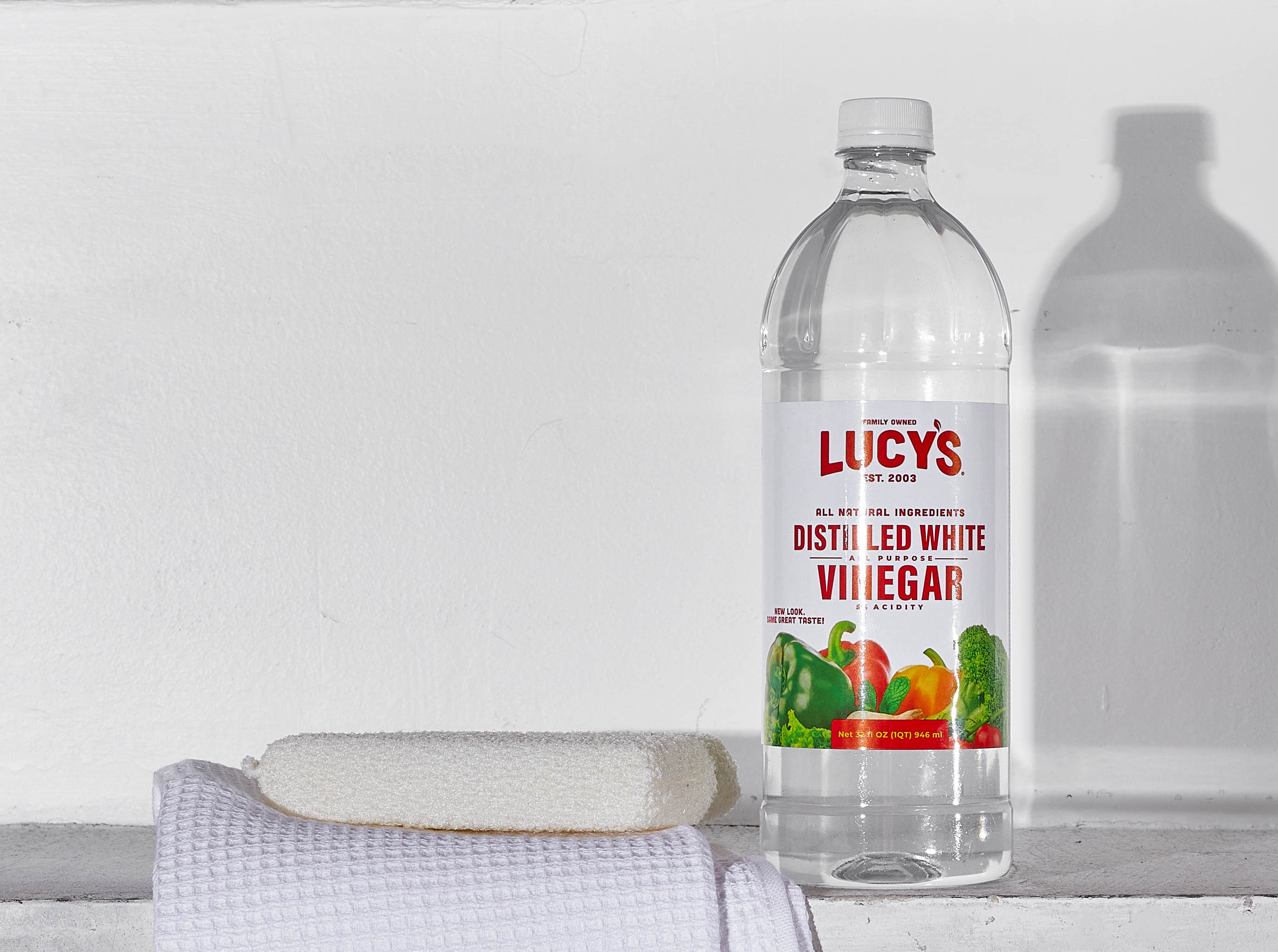What Is White Vinegar?
In many American households, the presence of white vinegar is a staple. Though primarily recognized as an ingredient in recipes, its uses extend far beyond the kitchen. But many people wonder: what exactly is white vinegar?
White vinegar, at the most basic, is a transparent liquid that combines fermented grain alcohol with water. The resultant tangy solution, often used in cooking, also doubles as an effective cleaning agent.
How White Vinegar Is Made
The creation of white vinegar can be simplified to 3 keys steps:
1. Origin: It all starts with grain alcohol, which is derived from sources such as corn or barley.
2. Fermentation: In this stage, bacteria are introduced to the grain alcohol and consume it.
3. Conversion: As these bacteria process the alcohol, they produce acetic acid. This reaction transforms the original substance into what we recognize as white vinegar.
White Vinegar vs. Chemical Cleaners
Considering the choice between white vinegar and traditional chemical cleaners? Here are reasons to lean toward the natural solution:
- Safety: Especially in homes with children, safety is paramount. Using white vinegar ensures you're cleaning with a substance that, while effective, remains non-toxic. The absence of harsh chemicals means that surfaces remain safe to touch, even for the most sensitive of skins.
- Reduced Allergens: Many chemical cleaners come with fragrances or residues that can irritate the respiratory system or skin. White vinegar provides an effective clean without such additives, minimizing the risk of allergic reactions.
- Environmental Consideration: Using white vinegar contributes to a reduced carbon footprint. This choice diminishes plastic waste, and fewer chemicals are introduced into our water systems, preserving the ecological balance.
Versatile Applications of White Vinegar
Understanding its varied uses can amplify the effectiveness of this natural solution:- Stain Treatment: Confronted with a challenging stain on clothing or upholstery? Applying white vinegar can gently lift these stains, restoring the fabric's original appearance.
- Bathroom Cleaning: For faucets and fixtures that have lost their shine, a cloth dampened with white vinegar can reinstate their gleam, eliminating water spots and mineral deposits.
- No-Streak Window Cleaning: Mixing white vinegar with water creates a solution that can render windows spotless, without the streaks often left behind by commercial cleaners.
- Refrigerator Freshness: Positioning a bowl filled with white vinegar inside a refrigerator can help neutralize odors, ensuring that the contents remain fresh and free from overpowering smells.
- Laundry Aid: If fabric softener isn't available or desired, introducing a small amount of white vinegar during the final rinse cycle can soften clothes and reduce static, while also eliminating detergent residues.
White vinegar stands as a testament to nature's capability. Its adaptability, from culinary uses to house cleaning, makes it an indispensable asset in contemporary households. As we strive for safer, healthier living environments, embracing such natural solutions becomes not just an option, but a way of life.



